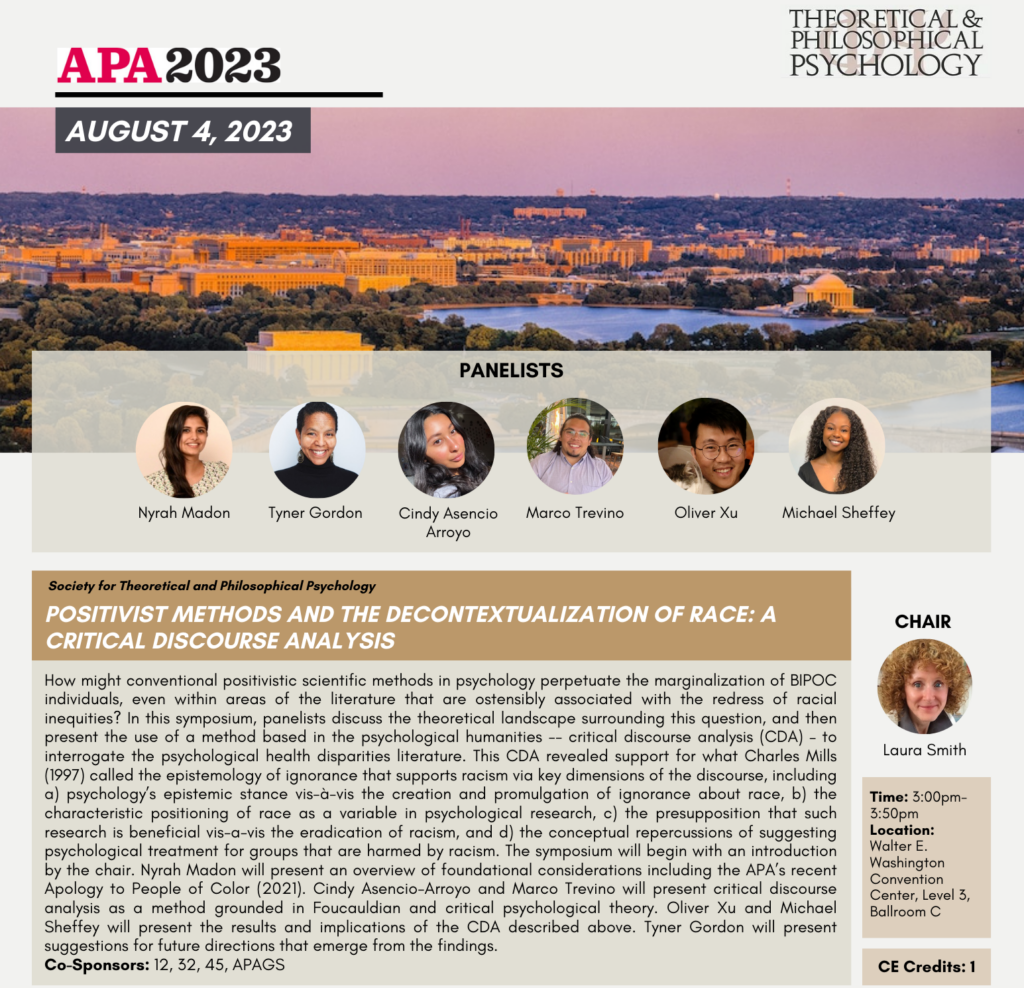The American Psychological Association’s (APA) pledge to dismantle racial inequalities is under scrutiny almost two years after its formal apology for historical contributions to systemic racism. A significant new study, led by Professor Laura Smith and her team at Columbia University provides an in-depth examination of the existing challenges within the field.
Published in the Journal of Theoretical and Philosophical Psychology and highlighted at the 2023 APA Convention, the research employs Critical Discourse Analysis to investigate the subtle ways in which contemporary practices and language in psychology may unintentionally support racial disparities.
These findings illuminate the complexity of the challenges facing psychology’s approach to race and the urgent need for intentional, sustained efforts to drive change. The study serves as a vital reminder that tangible actions must align with commitments if the field is to make genuine progress in redressing racial inequities.

In 2020, the murder of George Floyd and numerous other acts of racial violence led the American Psychological Association (APA) to apologize for its historical and current contributions to systemic racism. Sociologist Nicki Lisa Cole describes systemic racism as “intersecting, overlapping, and codependent racist institutions, policies, practices, ideas, and behaviors that give an unjust amount of resources, rights, and power to white people while denying them to people of color.”
To work towards dismantling systemic racism, the APA committed to: • Avoid research that reinforces racial hierarchies. • Describe race as a socially and legally constructed category with no underlying biological or genetic basis. • Develop policies that “decenter whiteness in science, scholarship, and practice.” • Use research and practice to advance health equity.
Almost two years after the APA’s apology, researchers at Columbia University have reviewed recent psychology articles on race and mental health to gauge how language about race is being utilized in research and practice. They discovered that, despite a rise in well-intentioned pro-equity research, psychologists often discuss race in ways that continue to perpetuate racism and racist ideologies.
According to the researchers led by Laura Smith, Professor of Psychology and Education at Columbia University:
“When psychologists study human well-being by dividing people into racially aggregated groups, they may unintentionally perpetuate inaccurate understandings of race that obscure the operations of racism to harm people. Clarity about these issues is necessary for the eradication of racism in psychology and elsewhere.”
To understand the discourse in psychological research since the APA’s apology, the study draws on French historian and philosopher Michele Foucault’s ideas about the relationship between discourse and power. He argued that every discipline has an “episteme” or “field of knowledge” that influences what society believes to be true. This often taken-for-granted knowledge is developed through discourse and works to maintain the status quo or current power relations, such as the white racial hierarchy.
In simpler terms, the way we talk about things influences what we as a society accept as truth. The truth we accept influences our attitudes and treatment towards others, policy decisions, the advancement of health research, etc., which all determine how society is organized.
In this context, academic discourse in psychology is often communicated through research articles and conference presentations, determining public awareness and knowledge about psychology and mental health. We all engage in discourse, but psychologists leverage their professional status to inform public opinion in powerful ways that shape power structures and are often accepted as truth.
Using a qualitative research method known as Critical Discourse Analysis (CDA), this diverse team of researchers underwent a rigorous process that entailed several rounds of close and critical reads of the articles, theme development, and debate on themes until the team reached a consensus.
The research team concluded that many psychological studies failed to connect mental health disparities with structural racism and power structures. Race was often used as a statistical variable, like age, without considering its historical and social context. This lack of connection obscured the “historical and present-day systemic injustices” contributing to mental health disparities.
The researchers also found a tendency to focus on new treatments and the education of BIPOC (Black, Indigenous, People of Color) individuals about their need for treatment without recognizing the need to combat structural racism, which is inseparable from psychological and mental health disparities.. Using race as a variable without considering its context can inadvertently uphold the status quo and white racial hierarchy, with some researchers potentially profiting from such work.
“There was no reference made to the improved health of white participants vis-à-vis their advantageous positions within the same structural system that harms the health of BIPOC [Black, Indigenous, People of Color] participants nor to such particulars as those individuals’ comparatively better access to health care. There were no mentions of social dominance nor status quo power arrangements.”
Using race as a variable but neglecting context shapes discourse in a way that produces ignorance and upholds the interests of the status quo or those who benefit from a White racial hierarchy. Discourse on health disparities research often creates professional opportunities for researchers to profit from.
Therefore, a higher standard must be set for what is considered pro-equity work. This work must extend beyond including race as a variable in analyses to actually calling out and intentionally thinking about systems of oppression that directly contribute to the racial health disparities being researched.
A known limitation to the use of Critical Discourse Analysis (CDA) is that another team of researchers may have perceived the articles under review differently. However, given the APA’s admittance to the profession being founded on “oppressive psychological science [used] to protect Whiteness, White people, and White epistemologies,” it is of utmost importance that all research that uses race-based dimensions of mental health actively works towards dismantling structural racism.
Actively doing so is one step of many that psychologists and the APA must do to acknowledge the harm already done to BIPOC communities and honor their newfound commitment to dismantling structural racism moving forward.
****
Smith, L., Madon, N., Gordon, T., Asencio, C., Xu, O. Y., & Sheffey, M. (2023). Psychology, race, and “the politics of truth.” Journal of Theoretical and Philosophical Psychology. https://doi.org/10.1037/teo0000249















Beyond Forgiveness: Research Reveals How “Psychological Discourse” Creates “Mental Illness”.
Report comment
Good they take into account how to interpret a variable, without diminishing the fact that goes beyond being an input in a model. (I had lived with my skin my whole life too…)
Obstetricians are also apparently just catching up to that, so they are not alone in missinterpreting the data. And, oh god, the society they live in…
Report comment
“Decenter whiteness” sounds like racism to me.
Report comment
It is also noteworthy that readers can’t access the article itself without paying for it, or having access through their university. This seriously limits accessibility to an important topic!
Report comment